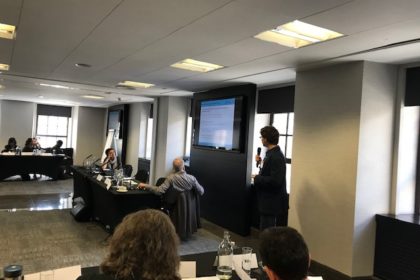
According to the Global Gender Gap Index of the World Economic Forum (2018), South Korea is one of the lowest ranked countries in the world in terms of “Economic Participation and Opportunity” (124th out of 149 countries) as of 2018. The Global Gender Gap Index also shows that South Korea ranks 88th in terms of female labor force participation and 121st in terms of gender wage equality for similar work. The average wages of women in South Korea are on average 36.7% lower than average male wages (as of 2012, own calculations based on World Klems (2014) database). These statistics reflect that there is a significant economic gender gap in South Korea despite the fact that the country is now classified as a high-income economy. Moreover, the underdeveloped care infrastructure and reliance on unpaid care labor of women is posing serious demographic and social sustainability challenges in an aging society.
Existing research on the effects of public spending show a stronger positive effect of public spending in social care and education on female employment as well as total employment compared to public investment in physical infrastructure (Antonopoulos et al., 2010; Ilkkaracan, Kim and Kaya, 2015; Ilkkaracan and Kim, 2018; De Henau et al., 2016; Onaran, Oyvat and Fotopoulou, 2019a). These employment effects have further effects on the economy and the wellbeing of the society, as microeconomic studies across the board attest that a larger share of women’s income compared to that of men’s, is spent to satisfy the needs of the household (Blumberg, 1991; Antonopoulos et al, 2010; Pahl, 2000) and a possible increase in their income leads to increased spending on children’s education and wellbeing (Vogler and Pahl, 1994; Lundeberg et al. 1997; Cappellini, Marilli and Parsons, 2014). Onaran, Oyvat and Fotopoulou (2019a) confirm this finding at the macroeconomic level for the case of the UK. These consequently have further demand and supply side effects on output, productivity and employment (Onaran, Oyvat and Fotopoulou, 2019a; Seguino, 2017).
Oyvat & Onaran (2019) examines the short-run and medium-run impact of public spending in social infrastructure, defined as expenditure in education, childcare, health and social care on aggregate output and employment of men and women for the case of South Korea. They present a gendered Post-Kaleckian theoretical macroeconomic model. The authors estimate the macroeconomic effects of social expenditure using a vector autoregression (VAR) analysis for the period of 1970-2012. The results show that an increase in the public social infrastructure significantly increases the total non-agricultural output and employment in South Korea both the short and medium-run. Moreover, higher social infrastructure expenditure increases female employment more than male employment in the short-run and raises both male and female employment in the medium-run due to increasing aggregate output. Finally, estimates show that the South Korean economy is wage-led and gender equality-led in the short-run, hence overall equality-led, although the effects are economically small in comparison to the strong effects of increases social infrastructure spending, and become insignificant in the medium-run. The results indicate that sustainable equitable development and a substantial increase in employment requires a mix of both labor market and fiscal policies.
This paper will be available December 2019
